Break Up the Dance (1957)
Genre : Drama
Runtime : 8M
Director : Roman Polanski
Synopsis
Youths get ready for a party, decorating the dance floor, cleaning out the fountain of a pond. That evening, the party starts and guests arrive: everyone has a ticket, and a guy at the gate, wearing a formal shirt, tails, and shorts, makes sure only those with tickets gain entrance.

The Short Films of David Lynch (2002) is a DVD collection of the early student and commissioned film work of American filmmaker David Lynch. As such, the collection does not include Lynch's later short work, which are listed in the filmography. The films are listed in chronological order, with brief descriptions of each film. The DVD contains introductions by Lynch to each film, which can be viewed individually or in sequence. # 1 Six Figures Getting Sick (Six Times) # 2 The Alphabet # 3 The Grandmother # 4 The Amputee # 5 The Cowboy and the Frenchman # 6 Premonitions Following an Evil Deed

On Anna's birthday, Elsa and Kristoff are determined to give her the best celebration ever, but Elsa's icy powers may put more than just the party at risk.

In this sound-era silent film, a tramp falls in love with a beautiful blind flower seller.
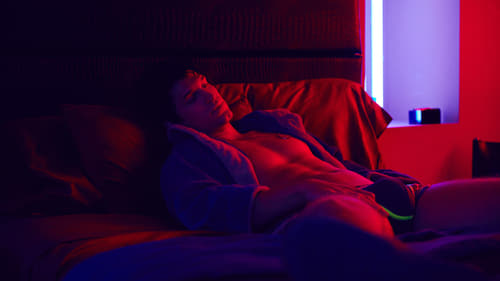
It's 2006, YouTube is in its infancy, and internet porn is still behind a paywall. Taking the stage name Brent Corrigan, a fresh-faced, wannabe adult video performer is molded into a star by Stephen, a closeted gay porn mogul who runs the skin flick empire Cobra Video from his seemingly ordinary suburban home. But as Brent's rise and demands for more money put him at odds with his boss, he also attracts the attention of a rival producer and his unstable lover who will stop at nothing to squash Cobra Video and steal its number one star.
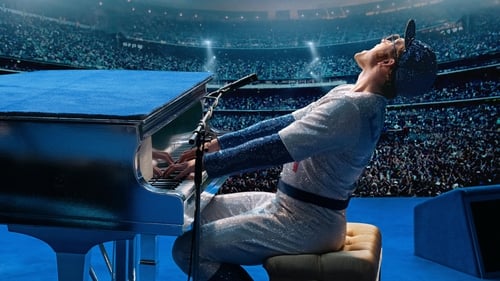
The story of Elton John's life, from his years as a prodigy at the Royal Academy of Music through his influential and enduring musical partnership with Bernie Taupin.
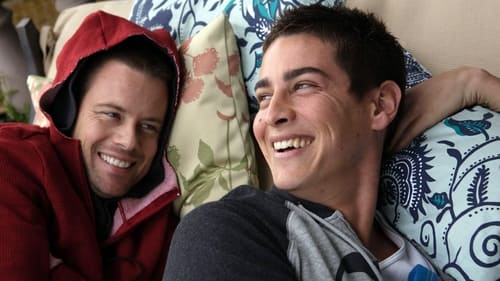
Forced to give up his dreams of art school, Zach works dead-end jobs to support his sister and her son. Questioning his life, he paints, surfs and hangs out with his best friend, Gabe. When Gabe's older brother returns home for the summer, Zach suddenly finds himself drawn into a relationship he didn't expect.

The mysterious Count Orlok summons Thomas Hutter to his remote Transylvanian castle in the mountains. The eerie Orlok seeks to buy a house near Hutter and his wife, Ellen. After Orlok reveals his vampire nature, Hutter struggles to escape the castle, knowing that Ellen is in grave danger

From an adventurous balloon ride above the clouds to a monster-filled metropolis, Academy Award®-winning director Pete Docter (“Monsters, Inc.,” “Up”) has taken audiences to unique and imaginative places. In Disney and Pixar’s original movie “ Inside Out,” he will take us to the most extraordinary location of all—inside the mind.

Set during a long, hot summer on the Thamesmead Estate in Southeast London, three teenagers edge towards adulthood.

The story of Nathan, a young teenager who tries to flourish in a romantic relationship with neighbour Roy. The two young men will have to face the brutal reality of the rural south of the United States in the late 1970s.
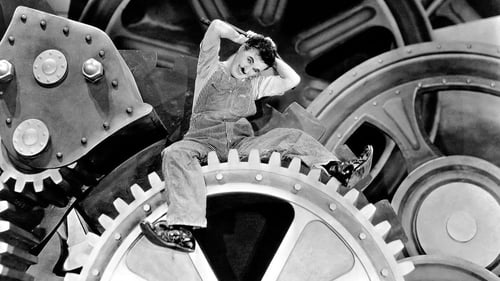
The Tramp struggles to live in modern industrial society with the help of a young homeless woman.
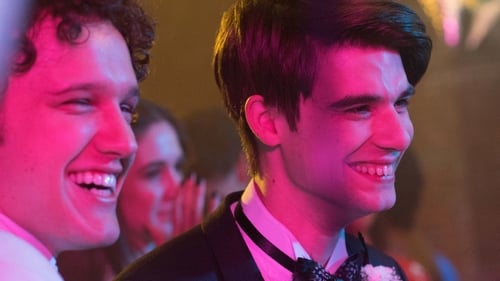
Alex Truelove is on a quest to lose his virginity, an event eagerly awaited by his patient girlfriend and cheered on with welcome advice by his rowdy friends. But Alex, a super gregarious dude, is oddly unmotivated. A magical house party throws Alex into the presence of Elliot, a hunky college guy, who pegs Alex as gay and flirts hard. Alex is taken aback but after a series of setbacks on the girlfriend front he takes the plunge and learns some interesting new facts about himself.

After a drunken house party with his straight mates, Russell heads out to a gay club. Just before closing time he picks up Glen but what's expected to be just a one-night stand becomes something else, something special.

Gabriel rents a room in Juan’s House. They work together in a Woodwork place. Gabriel is a very quiet guy and has a little daughter. Juan is a party boy who has a lots of girls around. Inadvertently the sexual tension starts to grow between them. It opens a new hidden forbidden world they have to deal with.
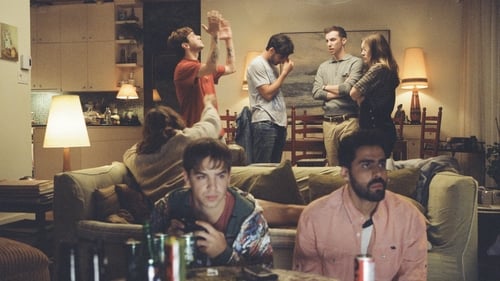
Two childhood best friends are asked to share a kiss for the purposes of a student short film. Soon, a lingering doubt sets in, confronting both men with their preferences, threatening the brotherhood of their social circle, and, eventually, changing their lives.
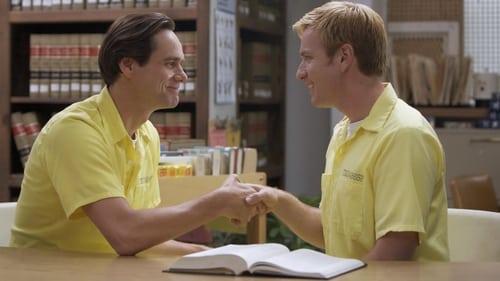
Steve Russell is a small-town cop. Bored with his bland lifestyle, Russell turns to fraud as a means of shaking things up. Before long, Russell's criminal antics have landed him behind bars, where he encounters the charismatic Phillip Morris. Smitten, Russell devotes his entire life to being with Morris regardless of the consequences.

Ruben and Carlos become cellmates in a minimum-security prison. While Ruben struggles to learn the ropes of daily life and where he falls in the complex hierarchical prison system, Carlos becomes a mentor and then eventually a lover. The two men develop feelings for one another they can't easily express. As time moves on and one of them is released before the other, there are questions looming as to whether what they had was real or simply out of the need for human connection.

Princess Jasmine grows tired of being forced to remain in the palace, so she sneaks out into the marketplace, in disguise, where she meets street-urchin Aladdin. The couple falls in love, although Jasmine may only marry a prince. After being thrown in jail, Aladdin becomes embroiled in a plot to find a mysterious lamp, with which the evil Jafar hopes to rule the land.

Olaf is on a mission to harness the best holiday traditions for Anna, Elsa, and Kristoff.
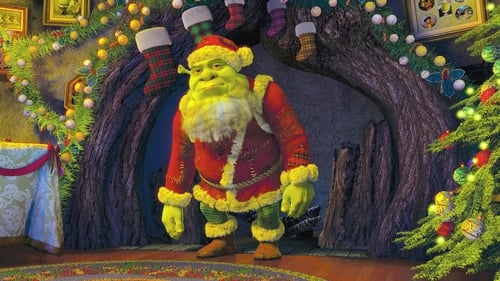
The Christmas tree isn't the only thing green in this new holiday classic. Shrek is back and trying to get into the spirit of the season. After promising Fiona and the kids a Christmas they'll remember, he is forced to take a crash course in the holiday. But just when he thinks he has everything for their quiet family Christmas just right, there is a knock at the door.

A small and thin barefoot slave (played by Polanski) plays a flute and beats a drum to entertain his large master who rocks in a rocking chair in front of his mansion. The slave jumps and leaps like a madman, wipes his master's brow, feeds him, washes his feet, shades him from the sun with an umbrella and holds a urinal for him.

The twenty-one-minute-film is set in a men's public rest room and recounts the day to day existence of an elderly woman who serves as an attendant in the lavatory. As an endless procession of men pass before her, relieving themselves in the urinals, the attendant escapes her reality by daydreaming about the past and the soldier she once loved and the child she bore him.

"Waiting for Godot" on ice and snow, without words. Against a barren winter landscape, a figure approaches: it's a man, pulling a small sleigh on which another man sits, plucking a dead bird. They stop to trade places; the one now on the sleigh takes out his knitting. Accidents, misunderstandings, disagreements, and an outright fight await our absurd protagonists as their trip to nowhere continues, first with one pulling, then the other. What if they were to lose the sleigh? What rules of civilization and partnership would guide them then?
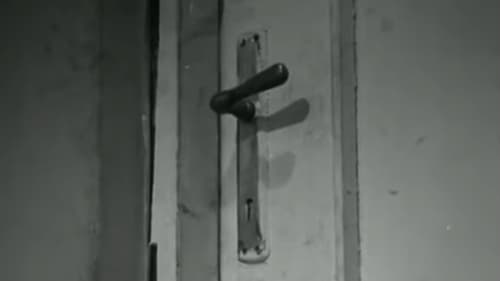
The camera shows us a door handle and the door's striker plate; from this angle, they form a cross. The door opens and in steps someone in a dark trench coat. He approaches a bed in the room, where a shirtless man sleeps.
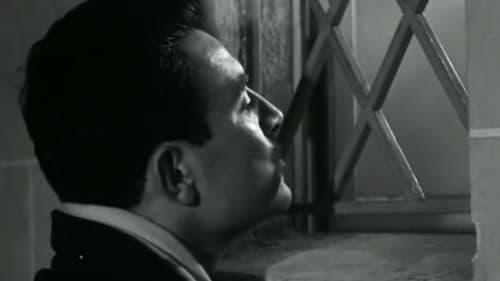
A man walks down the exterior staircase of building of flats; he's dressed to go out, taking care to wrap a scarf around his neck. He pauses as he passes a small window that's about eye high. He ventures to look in, and there a young woman stands at a washbasin, drying her hair,
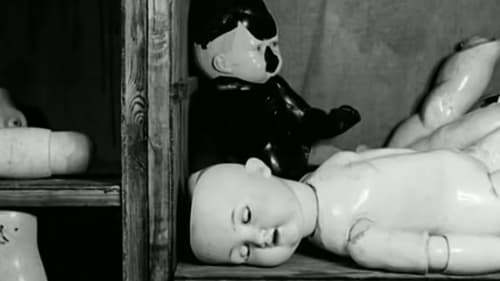
In waning winter light, a doll maker works in his shop, a kerosene lamp beside him, a jumble of dolls and doll parts, whole and broken, surrounding him. There are noises, too: a cuckoo clock chirps the workday's end. The artisan completes a repair and leaves, shuttering the shop from outside. Back inside, whispering begins. What else is in store for the shop's seemingly lifeless denizens?

A short Polish black and white silent movie directed by Roman Polański. The film features two men who emerge from the sea carrying a large wardrobe, which they proceed to carry into a town. Carrying the wardrobe, the two encounter a series of hostile events, including being attacked by a group of youths (one of whom is played by Polanski himself). Finally, they arrive back at a beach and then disappear in the sea.

This 1952 film by Georges Franju is a biographical film about cinematic illusionist Georges Méliès. It features Méliès’s widow, Jeanne d’Alcy, as herself, and their son, André, as his own father. LE GRAND MÉLIÈS, like Franju’s Louis Feuillade tribute, JUDEX, is a revealing homage to one of the director’s idols.

A critique of materialism, the film is about a young couple who live in a rundown empty apartment. Their love is so strong that it makes the water flow and the electricity work, but when they start purchasing furniture and knickknacks, they fight and grow apart.

An adventure of three characters: Clarisse, a psychic’s apprentice, Lazare, who works at the Parisian catacombs, and the bronze statue of a lion at the Denfert-Rochereau (in the 14th arrondissement). Clarisse and Laraze meet daily, but one day Lazare disappears and the lion disappears as well!

As with so many early films by Sokurov, this film has two dates: the first is the date of its creation (the film was then banned), the second is the date of the final edition and legal public screening. The film consists of German and Soviet archive footage of the World War II — to be exact, from the end of the war. An attempt to make a large–scale documentary on this subject had been undertaken in the Soviet cinema of the 1960s: the film — “Ordinary Fascism” — by the outstanding Soviet film–maker Mikhail Romm had become a classic retrospective investigation of fascism. But Sokurov uses the expressive power of the documentary image in an absolutely different way. He does not amass materials for a large–scale picture of Nazi crimes.

A short animated film by Jerzy Kucia.

"Free Floating" is a melodrama with elements of comedy about a young lad from an ordinary provincial town like many in Russia, with just one kindergarten, one school, one factory. As a result, one grows up here never facing the alternative as to what to choose, for everything is preordained. Leonid is an ordinary lad who, like his peers, goes to discos, dances with girls and picks fights with the local riff-raff later. Everything is going well for him, as his life is totally predictable. But one day the factory closes down and he becomes disoriented. For the first time ever, he is to make a choice on his own and think seriously about what he would like to do...
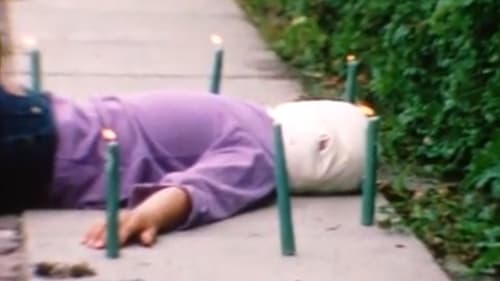
A man is being haunted by a masked stranger. The only language used in the movie comes from three (inter) title cards and a few sentences of sermon-like talk in Danish. Some of the talk is modified citations from the bible and similar sources.

A student is visited in his university lodgings by his critical parents.

A young intellectual, Mati, engineers himself into a situation where he has to spend a weekend with his wife Helina and her lover Eduard. The trio goes to Eduard's summer house, surrounded by the majestic scenery of big forests and an empty beach. Mati, either out of jealousy or pride, has decided to win back his wife and will do anything his introverted and inert mind can come up with.
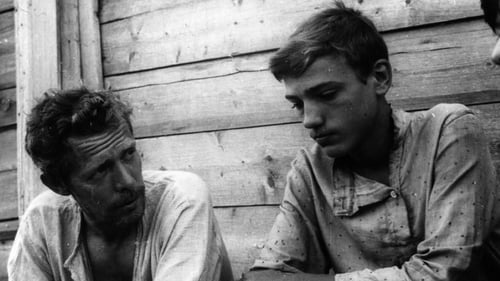
Two young directors adapted the short stories of two Russian authors whose works had been banned for decades, and so their film ended up in the censor’s vault as well – for twenty years. Both tales look back to the post-revolutionary era: 'Angel' speaks tragically of the brutality and destruction of the time, and 'The Homeland of Electricity' captures its haunting grotesquery.

On February 26, 1920, Robert Wiene's world-famous film The Cabinet of Dr. Caligari premiered at the Marmorhaus in Berlin. To this day, it is considered a manifesto of German expressionism; a legend of cinema and a key work to understand the nature of the Weimar Republic and the constant political turmoil in which a divided society lived after the end of the First World War.

One day, Saturday October 5th, in a mans life.

A lonely woman sends off for a special mail-order package.































